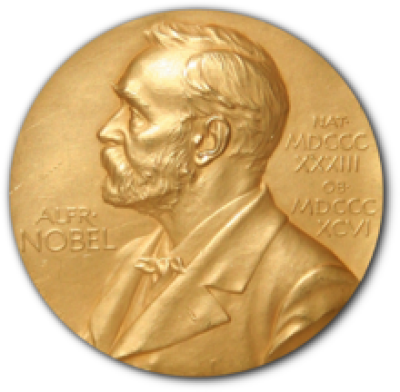Religion causes more peace than war

Once again, the Nobel Peace Prize has gone to a religious person: the Ethiopian Prime Minister and Pentecostal Christian Abiy Ahmed. I write “once again” because if you exclude the occasions when the Peace Prize has gone to organizations, only about four percent of recipients have been atheists. Monks like the Dalai Lama, archbishops like Desmond Tutu, pastors like Martin Luther King Jr., and religiously driven activists such as Malala Yousafzai and Denis Mukwege dominate the list of Nobel peacemakers. 80 percent of them are Christians.
This is in sharp contrast to the idea that religion only brings war and misery. Such thinking was popularized after 9/11 by atheists like Richard Dawkins and Christopher Hitchens. They believed that “religion poisons everything” and that a world without religious beliefs would have been much better.
And sure, many horrors have happened in the name of religion. One of last year’s Nobel laurates, Nadia Murad, has testified to the horrific repression that the islamic extremism of ISIS brings. Still, Murad herself is motivated by her Yazidic faith.
When Alan Axelson’s and Charles Philipp’s ambitious work “Encyclopedia of Wars” gathered information on 1,763 historical wars, only seven percent of them could be categorized as religiously motivated. Few, if any, of the most destructive conflicts that we have seen in modern times (such as the First and Second World Wars, the Vietnam War and the Second Congo War) have been caused by religion.
How, then, can people claim that religion “poisons everything” with war and oppression? One strategy is to claim that religious peacemakers are not really motivated by their faith—they would have done good even without it—while religious terrorists and warlords would not have resorted to their atrocities unless religion inspired them. Steven Weinberg expressed this sentiment, saying “With or without religion, good people can behave well and bad people can do evil; but for good people to do evil—that takes religion.”
However, this is not an argument, but a speculative prejudice. Weinberg does not take into account evil people who repent and do good because of religion: there are many examples of former criminals living completely new lives after a salvation experience. Furthermore, he confuses religion with extremist ideology, which does not require any religious content.
The atheist communism that has characterized the Soviet Union, China, North Korea and other countries has caused some of the greatest human rights violations in world history. Yemelyan Yaroslavsky, the founder of the Soviet League of Militant Atheist, declared in 1929 that millions of religious people would have to be exterminated for the good of society. It is estimated that between 12 and 20 million Christians lost their lives during the communist persecution in the following decades.
Atheism and secular ideologues can thus also have similar effects as religious extremism. They can also make people do good—just like religion. But unlike for example Christianity, atheism doesn’t have a moral code or any cosmic incentives to do what is right that extends beyond egoism, which makes it a less solid foundation for peace.
We must never forget the fact that, in practice, the contribution of religion to the world is overwhelmingly good. Religion has caused relatively few wars, but overwhelmingly many peace prizes.
Micael Grenholm is the editor-in-chief for Pentecostals & Charismatics for Peace & Justice and pastor of Mosaik Church in Uppsala, Sweden.



























